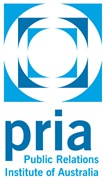Develop knowledge and practical skills to embark on a career in public relations and communication.
Courses offer a theoretical understanding of the relationship between public relations, media and society. Advanced courses cover event management, crisis and issues management, media and community relations, advertising, campaign planning, international communication, sports marketing and consumer behaviour. A range of elective courses are also available from either faculty. Industry engagement and internships provide practical experience.
- Only a full-time option is available to international students on a Student visa. Online programs are not available to Student visa holders.
- * Estimated tuition fees are based on 2024 rates. Refer to international fees for more information.
- Not all majors/minors and elective options are available at every campus. You should refer to the What Can I Study tab, and the proposed study sequence for your chosen campus and intake for further information.
Courses offer a theoretical understanding of the relationship between public relations, media and society. Advanced courses cover event management, crisis and issues management, media and community relations, advertising, campaign planning, international communication, sports marketing and consumer behaviour. A range of elective courses are also available from either faculty. Industry engagement and internships provide practical experience.
Majors
communication studies; creative advertising; public relations.
Career opportunities
Advertising, editing, corporate, marketing, government, policy communications, event management, media liaison, non-profit organisations, promotions, tourism.
Membership
Public Relations Institute of Australia.
Program structure
Program requirements
In order to graduate you must:
- Complete 2 core courses, 16 required courses and 6 electives.
- Complete no more than 10 introductory level courses, including core courses.
- Complete no more than 6 courses from the School of Business or the Faculty of Science, Health, Education and Engineering.
Program notes
- Completing this program within the specified (full-time) duration is based on studying 48 unit points per semester (normally 4 courses).
- Courses within this program are assessed using a variety of assessment methods including essays, seminar presentations, reports, in-class tests and examinations. Not all courses will necessarily include all methods.
- As part of your USC program, you may apply to participate in the Global Opportunities (GO) Program to undertake courses with an overseas higher education provider. It is advisable to contact your Program Advisor to discuss timing and course issues.
- Only a full-time study option is available to international students on a Student Visa.
- When enrolling, refer to the Study Plan.
Program structure
Core courses
Select 2 core courses from:
COR109 Understanding Society: An Introduction to Social Theory
COR110 Health, Society and Culture
COR111 Disability: Culture, Community and Change
Introductory courses
4 required courses
BUS105 Understanding Cultural Diversity
CMN102 Gender and Culture
CMN120 Human Services Placement 1
CMN140 Human Services Placement 2
Advanced courses
12 required courses
CMN213 Human Services Placement 1
CMN216 Human Services Placement 2
CMN218 Communication and Thought
CMN224 Innovation, Creativity and Entrepreneurship
CMN226 Environment, Technology and Sustainability
CMN229 Introduction to Marketing
CMN231 Communication Theory and Practice
CMN243 Public Relations: Contemporary Perspectives
CMN251 Introduction to Creative Advertising
CMN273 Editing for the Communications Professional
MKG210 Crisis and Issues Management
MKG221 Media and Community Relations
Elective courses
Select 6 elective courses from either faculty (Arts and Business or Science, Health, Education and Engineering).
TOTAL UNITS 288
